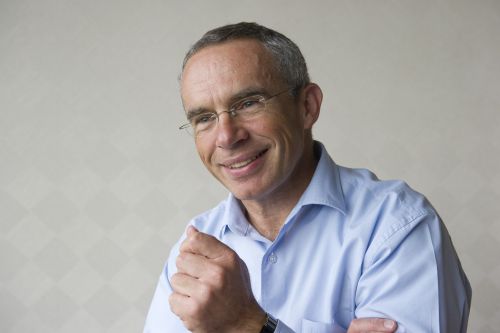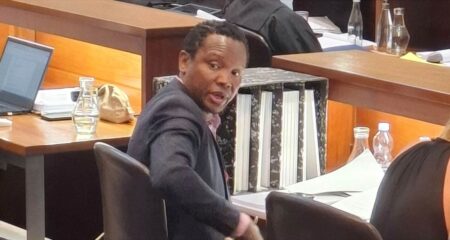 Vodacom has agreed in principle to further discussions about its costs structures with the national assembly’s communications committee, possibly behind closed doors.
Vodacom has agreed in principle to further discussions about its costs structures with the national assembly’s communications committee, possibly behind closed doors.
This followed a complaint by ANC MP Johnny de Lange on Tuesday during the committee’s public hearings on what it says is the excessive and exorbitant costs of mobile termination rates (MTR) in the industry.
The MTR is the fee one network charges another for terminating or completing calls on its network.
At the end of a lengthy presentation, and then a question and answer session, by Vodacom Group CEO Pieter Uys (pictured) and chief officer for regulatory and government relations Nkateko “Snakes” Nyoka, De Lange said the input and answers had been “really, really appalling”.
He took particular exception to Nyoka’s reluctance to answer questions about Vodacom’s cost structures in public. Nyoka said the cost structure information had been submitted to the Independent Communications Authority of SA (Icasa).
The information provided to Icasa affected each mobile operator individually.
“What that means is that I might have the information of Vodacom, but I don’t necessarily know what MTN has submitted. In essence, it’s confidential information which you don’t discuss in public,” Nyoka said.
An angry De Lange said parliament had the right, constitutionally and in terms of the Powers and Privileges of Parliament Act, to ask anyone, from the president downwards, for information, including the private sector, and “they have to come and give it to us”.
“This refusal today by Vodacom, leaves us with one choice … and that is to subpoena the information from them if they’re not going to give it voluntarily. I insist on a breakdown of your costs,” he told Uys and Nyoka.
“If it is that you don’t want the rest of the public to see, then you ask the chair [of the committee] to have that behind closed doors and the committee will consider whether we can have it behind closed doors. We can make that concession if we all agree to it,” De Lange said.
Uys repeated the costs and the complete manuals describing the costs had been submitted to Icasa. “You do not have to subpoena us. Those can be [obtained] from Icasa.”
However, De Lange pointed out the committee needed the information directly from Vodacom so they could question the company on it.
After further discussions, committee chairman Ismail Vadi asked Uys: “Would you be opposed to coming to a closed session, as Vodacom individually, in the presence of Icasa, to put that information at our disposal, and for some amount of questioning and interrogation?
“Then we can manage this exercise in a better way, and of course we would ask that to each one of the operators if they would be willing,” Vadi said.
“We do not have a problem in engaging with a further discussion on it,” Uys responded. Earlier, Uys said the industry was perfectly willing to review the interconnection rates.
“So what we are doing, we have as an industry, had bilateral discussions, because there are non-discriminatory principles that we also have to conform to, to come up with an agreement that we can take to Icasa … to finally go to them, and I think it’s by next week, with a finally agreed number, as an industry, that we will move on very soon.
“We are willing to move, as long as we don’t go below the cost of the current market structure and the current network today,” he said. — Sapa
Subscribe to our free daily newsletter




